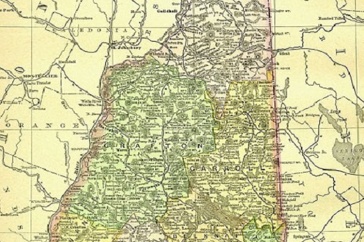
Josh Lauer, associate professor of communication, has won prestigious fellowships from the National Endowment for the Humanities (NEH) and the Library of Congress that will enable him to further his book project about the cultural history of the telephone in America.
While Lauer’s research scope is the long 20th century, the period between the telephone’s widespread adoption and the advent of mobile phones, roughly 1920-1990, has received little scholarly attention, he says. Yet, during that time, American life was shaped by the proliferation of phones and developments in phone technology.
The issues Americans grapple with now in the current age of communication — the effects of constant connectivity and its implications for privacy, relationships, health, identity, work and leisure — did not arrive with the internet, Lauer contends, but find their roots in the first form of mass connectivity, the telephone, and developed over time.
Lauer’s book will provide a missing piece of telephone historiography as well as investigate the cultural meaning of instant connectivity from the time of Bell’s invention to the present.
Though the Library of Congress Kluge Fellowship in Digital Studies was delayed due to COVID, Lauer is looking forward to gaining access to the Library’s significant resources later in the year when they reopen.
"As a media historian, I’ve been interested in how people have learned to live in a world of instant connection and 24/7 accessibility."
“I will have eight months on site to collect information from trade publications, popular press sources, business and industry texts, legal records and technical reports,” says Lauer. “While in Washington, D.C., I’ll also have access to archival sources at the Smithsonian’s National Museum of American History.”
The NEH fellowship will then provide Lauer uninterrupted time to write the book.
Though this line of research is a bit of a departure from his previous book, “Creditworthy: A History of Consumer Surveillance and Financial Identity in America,” and the forthcoming “Surveillance Capitalism in America,” a co-edited collection, it’s a subject he’s been thinking about for years.
“As a media historian, I’ve been interested in how people have learned to live in a world of instant connection and 24/7 accessibility,” Lauer says. Understanding the norms around connectivity that have evolved over time will “inform our cultural understanding of privacy, boundaries between work and home, and fantasies about technological progress and the future of communication.”
Lauer plans to develop a new undergraduate course on the history of instant communication based on his research.
-
Written By:
Susan Dumais '88 '02G | College of Liberal Arts



















































